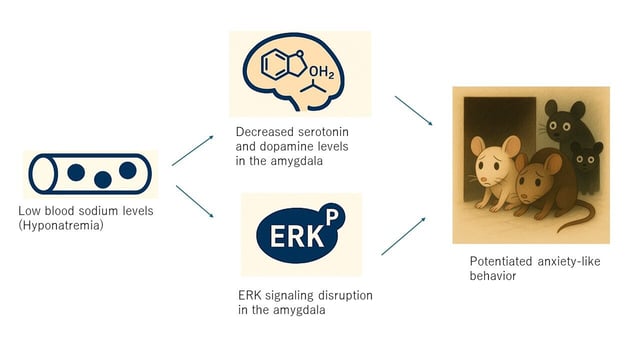Overview
- Fujita Health University researchers induced chronic hyponatremia in mice using desmopressin infusion and a liquid diet to sustain low serum sodium levels.
- Mice with prolonged low blood sodium exhibited increased anxiety-like behavior in standard light/dark transition and open field tests.
- Biochemical analyses showed that chronic hyponatremia significantly reduced serotonin and dopamine concentrations and ERK phosphorylation in the amygdala.
- Reversing sodium imbalance by stopping desmopressin infusion and restoring a solid diet returned neurotransmitter levels to normal and alleviated anxiety behaviors.
- Team members warn that chronic hyponatremia may similarly affect elderly or chronically ill patients and emphasize early diagnosis and treatment to protect brain function.
